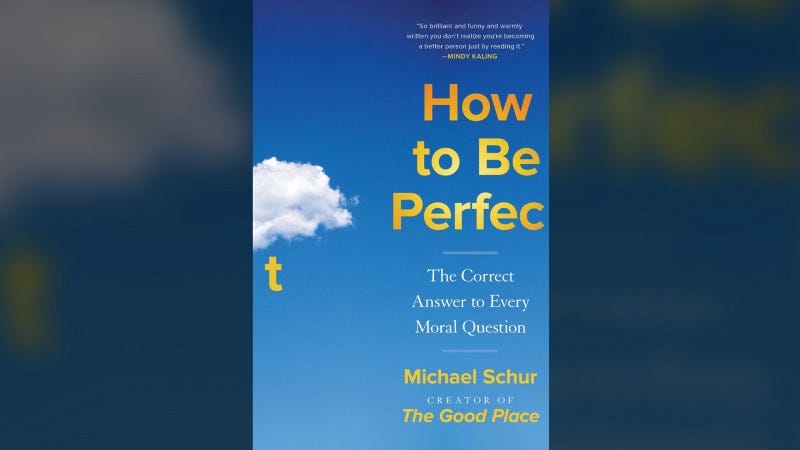New favorite book: How to Be Perfect
I’ve been obsessed for the last few weeks with Michael Schur’s book, How to Be Perfect. He’s the creator of the TV show “The Good Place,”…
I’ve been obsessed for the last few weeks with Michael Schur’s book, How to Be Perfect. He’s the creator of the TV show “The Good Place,” which I also completely adored. And this book is an intro to the philosophies he studied while preparing to write The Good Place, but it’s also so much more than that. Bonus: if you get the audiobook, you get actors from the show voicing various parts and quotes! IT’S SO GOOD.
I have always thought about the world, and myself, in pretty black & white ways, and that’s ended up causing me a lot of suffering when it didn’t really need to. I’ve been working on unpacking this stuff in therapy the last few years, and I’m always begging my therapist, “Can it PLEASE just for ONCE be a simple yes/no answer?!” (Alas, no. It never is.) Black & white thinking is happening in extreme ways on a huge societal/cultural level, too. It turns out, our brains are possibly wired like giant flowcharts, with binary answers at every turn. And when problems get complex, we look for increasingly simple, straightforward ways to understand it. Make it easy for me!, yell our brains. Make the flowchart smaller! And that’s how we end up with some of the inane policies we have, for real. I’ve been wondering lately: in an increasingly complex world, can legal systems account for the growing nuance we need in our lives?
Anyhoo, it’s all of the enormous gray area that I struggle with — in many cases, how to be the most morally and ethically balanced human that I can, and what I expect of others and our society in that department — that Schur just unfolds really wonderfully in the book. He takes the reader/listener on a whole journey, starting with hilariously simple examples, and then makes things more complex as the book goes on. And I loved his style — he uses himself as an example without centering his own experience; he acknowledges privilege in many ways; and, of course, he’s hilarious. We get to tackle things like, “If I drive a hybrid car, does that mean I’m ‘allowed’ to throw some plastic away once in a while instead of recycling it?” That’s obviously a really simple example, but if you’ve ever struggled with anything remotely similar, I think this book is for you, too.
What’s a book recently that’s really moved you? Of any genre — fiction, nonfiction, poetry, whatever? Hit me!



